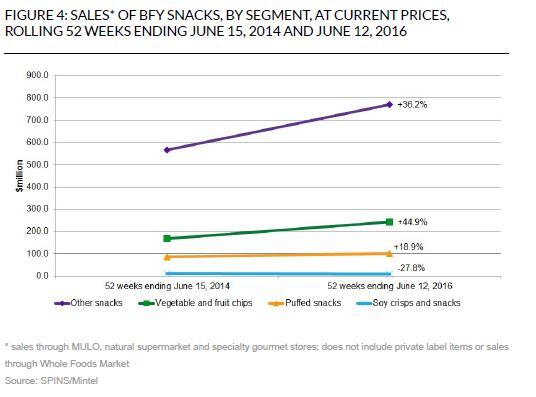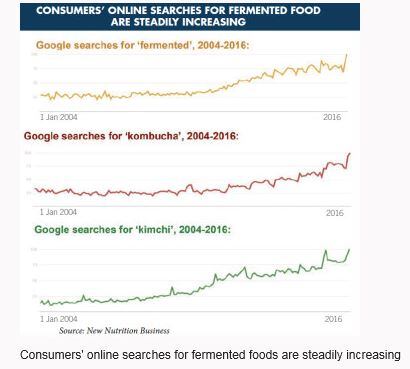The brand experienced 13.2% growth last year.
The company said Terra’s growth has outpaced the growth of natural snacks in the US market, which still grew at 7.7%, according to Spins’ latest data that includes conventional and multi-outlets for the latest 52 weeks ending December 26, 2016.
Director of marketing at Hain Celestial’s snacks division, Brett Hartmann, told BakeryandSnacks Terra’s growth is being driven by distribution as well as the increasing popularity of the brand with consumers.
“Terra is a premium brand within the Hain snacks portfolio that brings exotic or otherwise known vegetables to consumers,” he said. “Terra aims to simply enhance the natural flavors of the vegetable, celebrating the origins, diverse tastes and textures of each vegetable crafted into chips.”
Fruit and veggie chips
Within the better-for-you snack category, vegetable and fruit chips have outgrown other segments, such as puffed snacks and soy crisps, according to a recent report from Mintel.
Dollar sales for the soy crisps and snacks category decreased between June 2014 and June 2016 by 27.8%, while puffed snacks grew by 18.9%. Vegetable and fruit chips experienced a 44.9% growth rate during the same period, Mintel data shows.

Several snack companies are taking advantage of the growing fruit and veggie snack sector.
Dried fruit snack firm, Natural Sins, aims to compete with major players such as Dang Foods and Bare Snacks, by using only raw ingredients sourced from Costa Rica. Owner and CEO Andres Dominguez told BakeryandSnacks at Expo East in Baltimore, Maryland last year that his business grew 60% in the US in 2015.
Snack It Forward is also tapping the market by partnering with Sunkist in its latest TrueFruit clusters development.
Fermentation: the way forward?
Snack manufacturers are also taking up the white space opportunity in the fermented foods category, and gut health and digestive wellness claims have crept into snack foods, like yogurt and probiotic beverages, according to the latest report from New Nutrition Business.

Director of the research and consultancy, Julian Mellentin, said, “when PepsiCo, the world’s second-biggest food and beverage company, bought small fermented drinks maker KeVita in late 2016, it sent a clear sign that fermented foods have reached a tipping point.”
“Fermentation also connects to the plant-based foods trend. Companies have already tapped into this need by creating single-serve vegetable-based snacks, a format that fits well with fermentation.”
Farmhouse Culture and Luke’s Organic spearheaded the gut health-oriented snack space with the launch of probiotic-fortified chips last year at Expo East.
“Fermented vegetables are a well-established idea in consumers’ minds. They’re a traditional food format, such as kimchi or tempeh in Asia,” Mellentin added. “Offering a fermented chilled vegetable-based snack that is ready-to-eat can connect to that idea of traditional use and be credible.”
Simple, real ingredients
Hain aims to grow its net sales and margin growth this year by focusing on developing “wholesome products for in-between meals,” according to Hain’s Q3 2016 earnings conference call.
The launch of the new Terra chips is in line with Hain’s business outlook, said Hartmann.
“People are snacking multiple times throughout the day, sometimes in place of meals… We plan to continue expanding our portfolio with better-for-you snacks that have simple, real ingredients that are nutritious and more importantly, taste great by delivering exciting flavor combinations inspired by food from around the world," he said.
